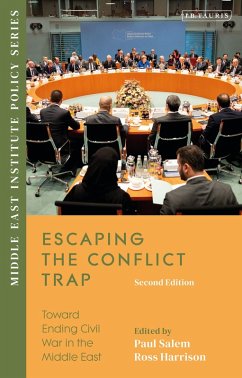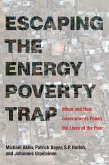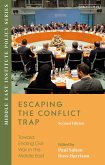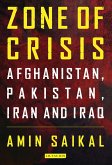How can the current civil wars in the Middle East be resolved? This volume brings together academics, experts, and practitioners to explore this question. The book covers the history of civil wars in the region during the 20th century, and then examines the specific causes, drivers, and dynamics of the ongoing civil wars in Syria, Yemen, Libya, Afghanistan, and Iraq.
Updated for a second edition, the book argues that while these are very different cases of civil war, there are patterns that are important to point out at the outset. First, while each of the conflicts appears to be a relatively recent phenomenon, each has a long historical tail. Second, each of the civil wars had deep and complex domestic drivers and dynamics over issues of governance, political identity, and resources; at the same time, all of the conflicts have had deep regional and international components. Finally, all of these civil wars have been affected by the presence or entrance of armed transnational non-state actors, which have had far greater involvement in the Middle Eastern civil wars compared to other regions. The book concludes that these conflicts will require a mixture of local, regional, and international interventions to bring them to an end, but that none of the conflicts are likely to end cleanly through either a negotiated settlement or a clear victory by one party or the other.
Despite this pessimistic overall assessment, the book emphasizes that policymakers should use knowledge of civil wars in the Middle East to develop and pursue specific national, regional and global policies. These should be built around mitigating the worst effects of the conflicts and towards ultimate resolution.
Updated for a second edition, the book argues that while these are very different cases of civil war, there are patterns that are important to point out at the outset. First, while each of the conflicts appears to be a relatively recent phenomenon, each has a long historical tail. Second, each of the civil wars had deep and complex domestic drivers and dynamics over issues of governance, political identity, and resources; at the same time, all of the conflicts have had deep regional and international components. Finally, all of these civil wars have been affected by the presence or entrance of armed transnational non-state actors, which have had far greater involvement in the Middle Eastern civil wars compared to other regions. The book concludes that these conflicts will require a mixture of local, regional, and international interventions to bring them to an end, but that none of the conflicts are likely to end cleanly through either a negotiated settlement or a clear victory by one party or the other.
Despite this pessimistic overall assessment, the book emphasizes that policymakers should use knowledge of civil wars in the Middle East to develop and pursue specific national, regional and global policies. These should be built around mitigating the worst effects of the conflicts and towards ultimate resolution.









